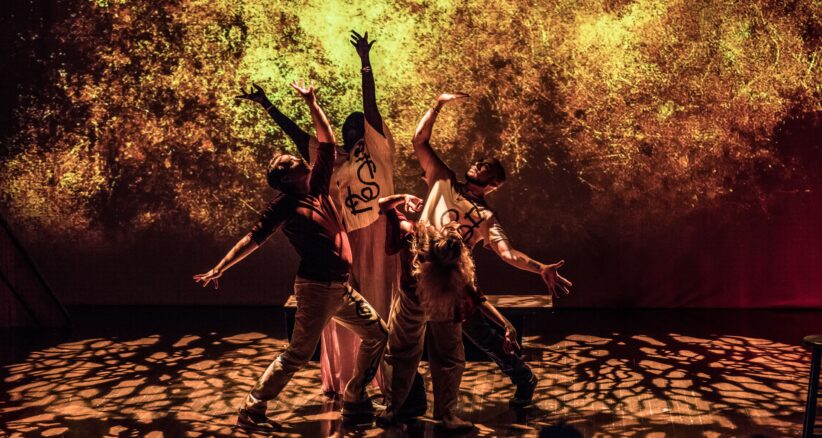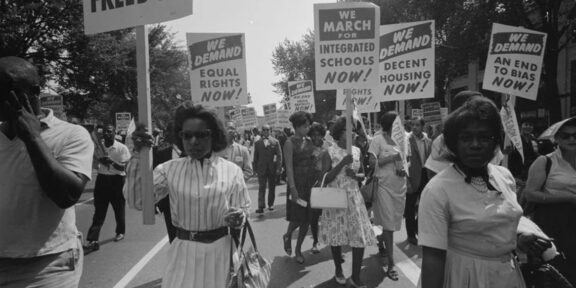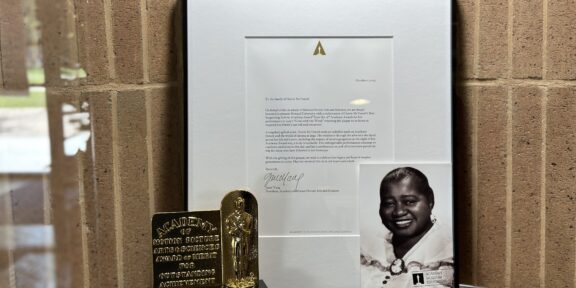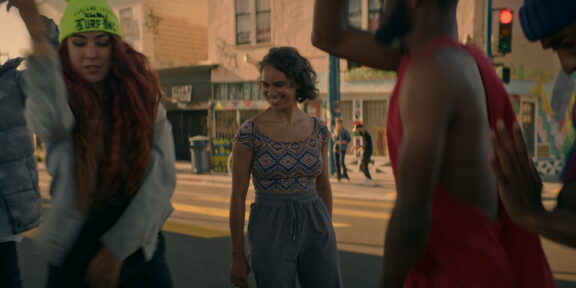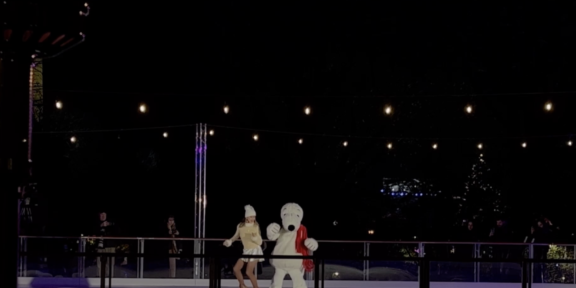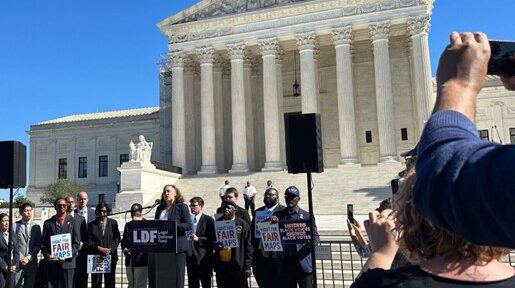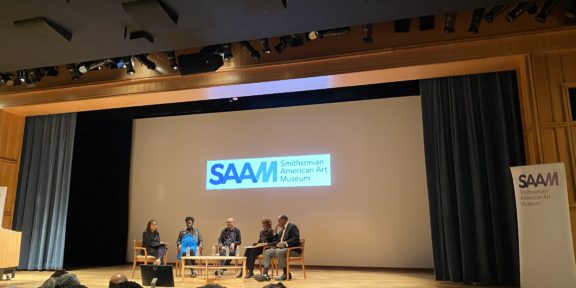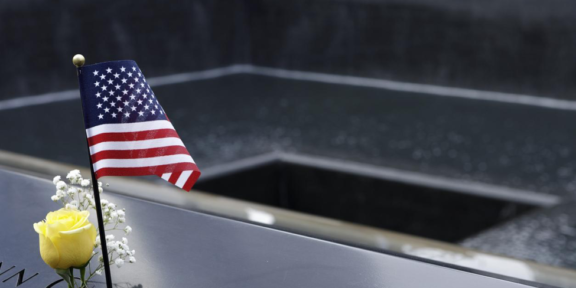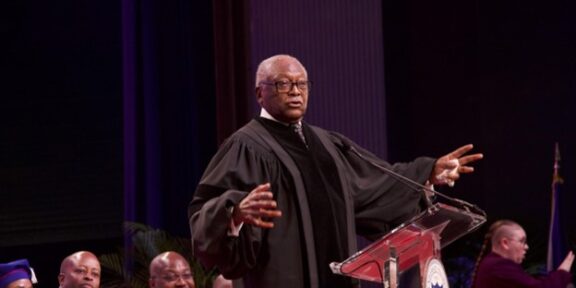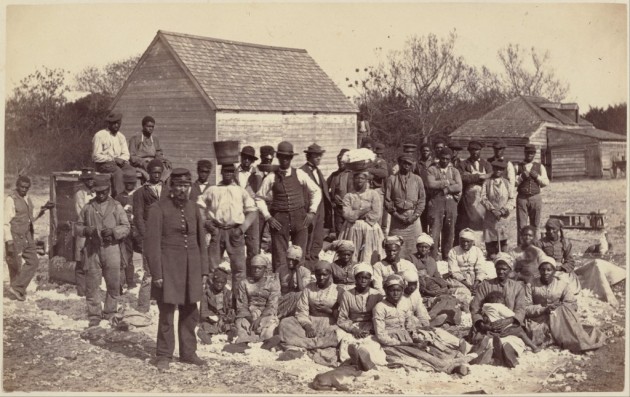By Ebenezer Nkunda
Howard University News Service
The play “Out of the Vineyard” is a series of interconnected stories that delve into freedom suits brought by enslaved people against enslavers in Prince George’s County, Maryland, between 1787 and 1861.
Starring Scott Ward Abernethy, Frank Britton, Adrienne Nelson and Jacqueline Youm, the actors perform the narratives of seven individuals related to the civil suits.
“Out of the Vineyard” adds emotional layering to the historical accounts, connecting the past and present, making the stories and individuals more relevant to today’s audiences and providing information often unknown to the masses.
“How can you navigate the rivers of life and interact with all kinds of people when you don’t have all the information?” asks Youm, who portrays both a mother and daughter with a particular sharecropping history.
Youm says this story is a chance for people to learn. “Having all the information is critical,” especially when it affects you, says Youm, a believer in informed decision-making.
Written by playwright Psalmayene 25, the theatrical performance is being showcased through Sept. 24 at Joe’s Movement Emporium, a cultural arts center in Mount Rainier, Maryland, off Rhode Island Avenue just across the D.C. border.
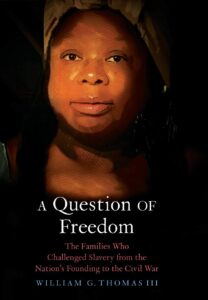 The play is under the direction and choreography of Tony Thomas and draws its inspiration from the historical book titled “A Question of Freedom: The Families Who Challenged Slavery From the Nation’s Founding to the Civil War” by William G. Thomas III.
The play is under the direction and choreography of Tony Thomas and draws its inspiration from the historical book titled “A Question of Freedom: The Families Who Challenged Slavery From the Nation’s Founding to the Civil War” by William G. Thomas III.
The play was commissioned in 2021 as part of the two-year Freedom Stories initiative, which explores the local history of enslavement and how it relates to contemporary life in Prince George’s County.
“It’s important to know that enslaved people were fighting and winning their freedom,” Brooke Kidd, founder and executive director of Joe’s Movement Emporium, said on opening night. “This shows how much this chapter of American history is buried.”
The Cultural Arts Center and other organizations in Prince George’s County make up a coalition of sponsors that provide antiracist and social justice programs, featuring authors and artists with experience and familiarity on the subjects.
Kidd was researching local history and seeking a topic to bring to the stage when she received a recommendation to read Thomas’ book and became aware of freedom suits. The novel’s history and connection to Prince George’s County sparked her interest. Markers of slavery still standing in the county captured Kidd’s attention and became the central theme of the production.
In the novel, Thomas, a historian and professor at the University of Nebraska-Lincoln, recounts and investigates freedom suits from America’s founding through the end of the Civil War. His historical accounts describe the efforts of five generations of enslaved families in Prince George’s County to secure their freedom and the freedom of others. Thomas includes his family history as he explores and expands on the slave-owning family.
Enslaved individuals initiated civil lawsuits in the 13 colonies and later the United States of America to assert their right to freedom, often by arguing their descent from a free maternal ancestor or their residence in a free state or territory for a certain period. This concept was commonly unknown among those in the theatrical production prior to being involved with the initiative.
Jacqueline Youm, being not only an actress but also a lawyer and teacher, recounts that she and her peers in law school did not learn about freedom suits.
“Enslaved people sued for their freedom, and they were allowed? It’s incredible,” she said.
The play retells the legal battles and vividly brings to life the experiences of those descended from the suits.
“Often, when you think about slavery, we think of a time that feels so far removed from where we currently are,” says playwright Psalmayene 24. “I had to figure out a way to bring the audience closer to that history.” Howard University alumnus Psalmayene 24 is an award-winning playwright, director, actor and the Andrew W. Mellon Foundation Playwright in Residence at Mosaic Theater in D.C.
When adapting the novel, he thought verbatim theater would be the best approach to compartmentalize the experience of slavery. The playwright conducted interviews with the descendants of families involved in freedom suits, putting current facts to history.
One descendant is a Georgetown University student whose family was enslaved by the Jesuits of Georgetown. This religious order once enslaved individuals and sold them to fund the university. The religious order recently pledged $27 million to the Descendants Truth and Reconciliation Foundation.
Scott Ward Abernethy plays Thomas in the adaption. Based on his study and preparation, he said that Thomas’ “intellectual honesty combined with curiosity is inspiring.”
At the premiere, Psalmayene 24 revealed that the deliberate casting of integrated actors was to show uniformity on stage to tell a story of enslavement. The playwright also said it was also important to establish that the legacy of history as deep as enslavement is something that involves every American regardless of race.
“It’s important to communicate to the audience that the history of enslavement is something that we all own in our legacy as Americans,” Psalmayene 24 says of the multiracial casting of “Out of the Vineyard.”
Freedom suits have deep roots in society’s judicial system. The first ruling of hearsay in the courtroom was itself made in the context of a freedom suit.
“The first time that someone found it necessary to rule against hearsay as admissible evidence was in the context of actively oppressing someone in which that was their only way of providing evidence against a much more powerful adversary in court,” Abernethy states.
For more information about the Freedom Stories initiative, click here. Tickets for “Out of the Vineyard” are available here. Howard students can use code HUARTS for discounts.
Ebenezer Nkunda covers arts and entertainment, including television and film, for HUNewsService.com.

